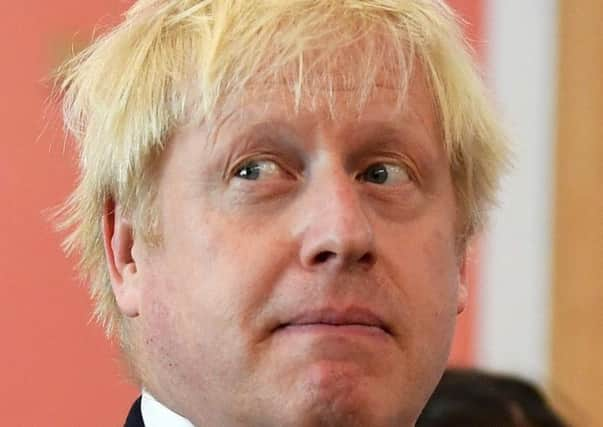Brexit: Don’t be fooled about who to blame if there’s a no-deal disaster – leader comment


Boris Johnson’s Brexit plan has cleared the first hurdle in not being immediately rejected by the EU. Ireland’s premier Leo Varadkar, whose take on the proposals will be key, said they “do not fully meet the agreed objectives of the backstop”, but at least there seemed to be some hope of a compromise acceptable to both sides.
However, any agreement between the UK Government and the EU is not the same as a majority in the Commons. Faragist Brexiteers and some in the Remain camp seemed united in their opposition.
Advertisement
Hide AdAdvertisement
Hide AdIf it fails, the Prime Minister has insisted he will lead Britain over the cliff-edge of a no-deal Brexit and we will all just have to find out how far we fall, how serious the damage is.
Right now, with less than a month to Brexit, the stakes are incredibly high. Given the multiple warnings about the potentially devastating effects of a no-deal on the UK economy, avoiding it has to be the priority.
If Johnson genuinely does want a deal, he is being extraordinary reckless, given he leads a minority Government. The suspicion is that his hurried proposals are merely an attempt to put the blame on the EU for the fallout. As people lose their jobs, Johnson will be able to protest that he really had wanted a deal but it was rejected by Brussels, long demonised by eurosceptics.
There is also a theory that the EU is not rejecting his plan out of hand simply to avoid this portrayal. So it’s all just a game of blame-shifting, a complete waste of time.
To be clear, if it happens, a no-deal Brexit will be the fault of Boris Johnson and MPs who fail to oppose it.
So MPs now face a vitally important decision to make. Do they have the votes – and the time – to bring down Johnson and delay Brexit? They must also consider whether the Act designed to force Johnson to ask the EU for a delay to prevent a no-deal will actually work. Johnson’s camp certainly seems to think there are ways around it.
The Scotsman’s position is that the most sensible way – the fairest and most democratic way – to settle this would be to hold a second referendum with all the available options on the ballot.
But, as politicians debate the merits of Johnson’s ideas for the Irish border and their effects on the integrity of the EU single market, the clock is ticking down to 31 October and Brexit. No carefully managed transition, just a chaotic overnight event of possibly cataclysmic proportions.